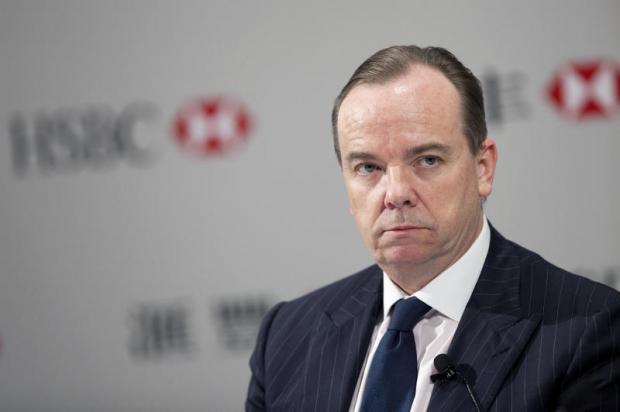
LONDON/Hong Kong: HSBC Holdings Plc said yesterday that it would cut its global headcount by up to 50,000 as part of a restructuring that entails its withdrawal from Brazil and Turkey.
The Asia-focused lender added in a statement that it intended to save up to $5 billion in annual costs within two and a half years as it seeks to boost profitability.
"HSBC is now undertaking a significant reshaping of its business portfolio," said the bank, which this year marks its 150th anniversary. "It is redeploying resources to capture expected future growth opportunities and adapting to structural changes in the operating climate."
The statement did not mention extensive job cuts, the details of which were buried in an accompanying report.
HSBC said there would be a 10% reduction in jobs, with between 22,000 and 25,000 classified under "transformation savings".
A further 25,000 jobs would be lost with the sale of operations in Turkey and Brazil.
"We recognise that the world has changed and we need to change with it," said chief executive Stuart Gulliver. "That is why we are outlining ... actions that will further transform our organisation."
He also confirmed the job losses would include between 7,000 and 8,000 positions in Britain — where its retail bank will be rebranded and relocated from London to Birmingham, central England, by 2019.
The overhaul is the latest in a series of swingeing cuts under Gulliver, who joined at the beginning of 2011.
Staff numbers have dropped from 295,000 in 2010 and by 2017 there will be 208,000 remaining.
"HSBC has an unrivalled global position: access to high growth markets; a diversified universal banking model with strong funding and a low risk profile; and strong internal capital generation with industry leading dividends," said Gulliver.
HSBC said that it would aim to save $4.5-5 billion in annual costs by the end of 2017 but would continue to serve large corporate clients in Brazil "with respect to their international needs".
The bank added that it would focus more on Asia, particularly the in the Pearl River Delta, and set up a ring-fenced British bank.
It also expects to complete a review of where to locate its headquarters by the end of this year.
Gulliver has previously said the lender may relocate due to increased British regulation and taxation of the banking sector.
Financial analyst Jackson Wong described the announcement as a "decisive move".
"It's a big cut...(but) they haven't been able to save costs over the past few years," Wong, associate director for Simsen Financial Group, told AFP.
He added that the bank was likely to relocate its headquarters to Hong Kong, owing to its low tax regime. "The chance is pretty high for Hong Kong."
But analyst Francis Lun said the cuts might be too severe. "They may have overdone it — if you cut the jobs any further ... you cannot get the job done."
He also believed Asia would be a friendlier environment for the bank.
"The problem is really with the regulators in Europe and America because they lost big during the financial tsunami so they want to get even with the banks," said Lun. "There's no future for major international banks in Europe and America, no matter how much money you make or save."
He said the Hong Kong Monetary Authority (HKMA), the city's de facto bank, was more relaxed. "They are not out to get the pound of flesh."
Swiss prosecutors on Thursday closed an investigation into allegations HSBC's Geneva branch helped clients evade millions of dollars in taxes, after it agreed to pay tens of millions in compensation.
The bank agreed to pay out 40 million Swiss francs ($43 million).
Geneva authorities opened the probe in February following the publication of secret documents claiming the bank assisted many wealthy clients in thwarting the taxman.
Last year, HSBC was separately fined by US and British regulators for attempting to rig foreign exchange markets.